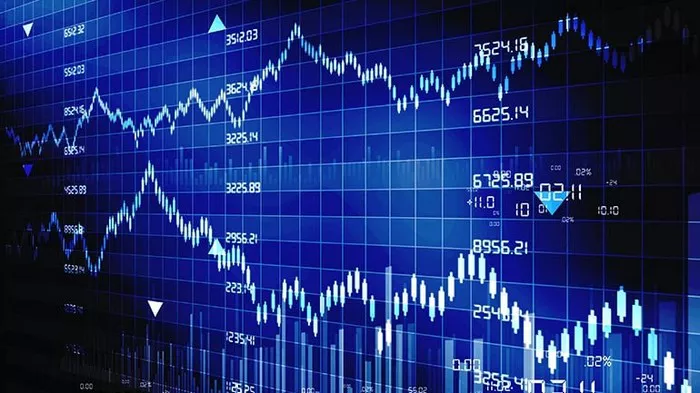Futures trading is a dynamic and multifaceted realm within the financial markets, offering traders a wide array of instruments to speculate on and hedge against price movements. A significant advantage of futures trading lies in its versatility—traders can access an extensive range of assets, from traditional commodities to financial instruments and even cryptocurrencies.
Commodities: A Historical Foundation
Commodities serve as the foundation of the futures market, with their origins tracing back to ancient civilizations. Agricultural products like grains, livestock, and dairy were among the earliest traded commodities. Today, futures trading encompasses a broad spectrum of commodities, including energy resources like crude oil and natural gas, precious metals like gold and silver, and agricultural products like soybeans, coffee, and cotton.
Financial Instruments: Market Insights
Beyond traditional commodities, futures markets extend to encompass a wide array of financial instruments. Stock market indices, such as the S&P 500, Dow Jones Industrial Average, and Nasdaq-100, are popular choices for futures trading. These contracts enable traders to speculate on the performance of an entire market, providing exposure to the broader economic landscape.
Currencies: Unveiling Global Markets
Currency futures offer traders the opportunity to speculate on the exchange rate between two currencies. Major pairs like EUR/USD (Euro/US Dollar), GBP/USD (British Pound/US Dollar), and USD/JPY (US Dollar/Japanese Yen) are commonly traded in the currency futures market. These contracts enable participants to take positions on the strength or weakness of a specific currency relative to another.
Interest Rates: Gauging Monetary Policy
Interest rate futures provide insights into market expectations regarding central bank policies and economic conditions. Contracts are based on various interest rate benchmarks, such as the federal funds rate in the United States or the Euro Interbank Offered Rate (Euribor) in the Eurozone. Traders can speculate on future interest rate movements, which can impact financial markets and borrowing costs.
Cryptocurrencies: Emerging Opportunities
In recent years, the emergence of cryptocurrency futures has added a new dimension to the futures market. Leading cryptocurrencies like Bitcoin and Ethereum now have futures contracts that allow traders to speculate on their price movements. Cryptocurrency futures offer a unique blend of volatility and potential for profit, attracting both traditional and crypto-savvy traders.
Livestock and Meats: Gauging Consumer Demand
The futures market extends to livestock and meats, providing insights into consumer demand and supply dynamics. Contracts for cattle and hogs allow traders to speculate on price movements in the livestock industry. These contracts are influenced by factors such as feed costs, weather conditions, and changing consumer preferences.
Energies: Navigating Global Demand
Energy futures enable traders to speculate on the price movements of energy commodities that play a crucial role in global economies. Crude oil futures, for instance, are influenced by geopolitical factors, supply and demand dynamics, and global economic conditions. Natural gas futures provide exposure to another vital energy resource used in heating and electricity generation.
Metals: Precious and Industrial
Metal futures encompass both precious metals, like gold and silver, and industrial metals, such as copper and aluminum. Precious metals are often viewed as safe-haven assets and are influenced by factors like inflation, currency movements, and geopolitical events. Industrial metals, on the other hand, reflect global economic trends and demand from sectors like construction and manufacturing.
Soft Commodities: Agricultural and Edible
Soft commodities include a diverse range of agricultural products that are either consumed directly or used in various industries. Contracts for products like coffee, sugar, cocoa, and orange juice provide exposure to trends in consumer demand, weather conditions, and supply chain dynamics.
Equity Index Futures: Market Sentiment
Equity index futures allow traders to speculate on the performance of a specific stock market index, reflecting market sentiment and broader economic trends. These contracts are particularly popular among investors seeking to hedge their equity portfolios or capitalize on short-term market movements.
Conclusion
The world of futures trading offers a remarkable diversity of assets, enabling traders to engage in speculative and hedging strategies across various markets. From traditional commodities to financial instruments, currencies, interest rates, cryptocurrencies, and beyond, futures markets encompass a wide spectrum of opportunities. Each asset class has its unique characteristics, influenced by factors ranging from economic indicators to geopolitical events.
Successful futures trading requires a deep understanding of the asset class being traded, market dynamics, and risk management strategies. Traders must stay informed about global events and developments that impact their chosen markets. By leveraging their expertise and utilizing trading platforms provided by reputable exchanges, traders can navigate the intricate landscape of futures markets and seize opportunities across a multitude of asset categories.


